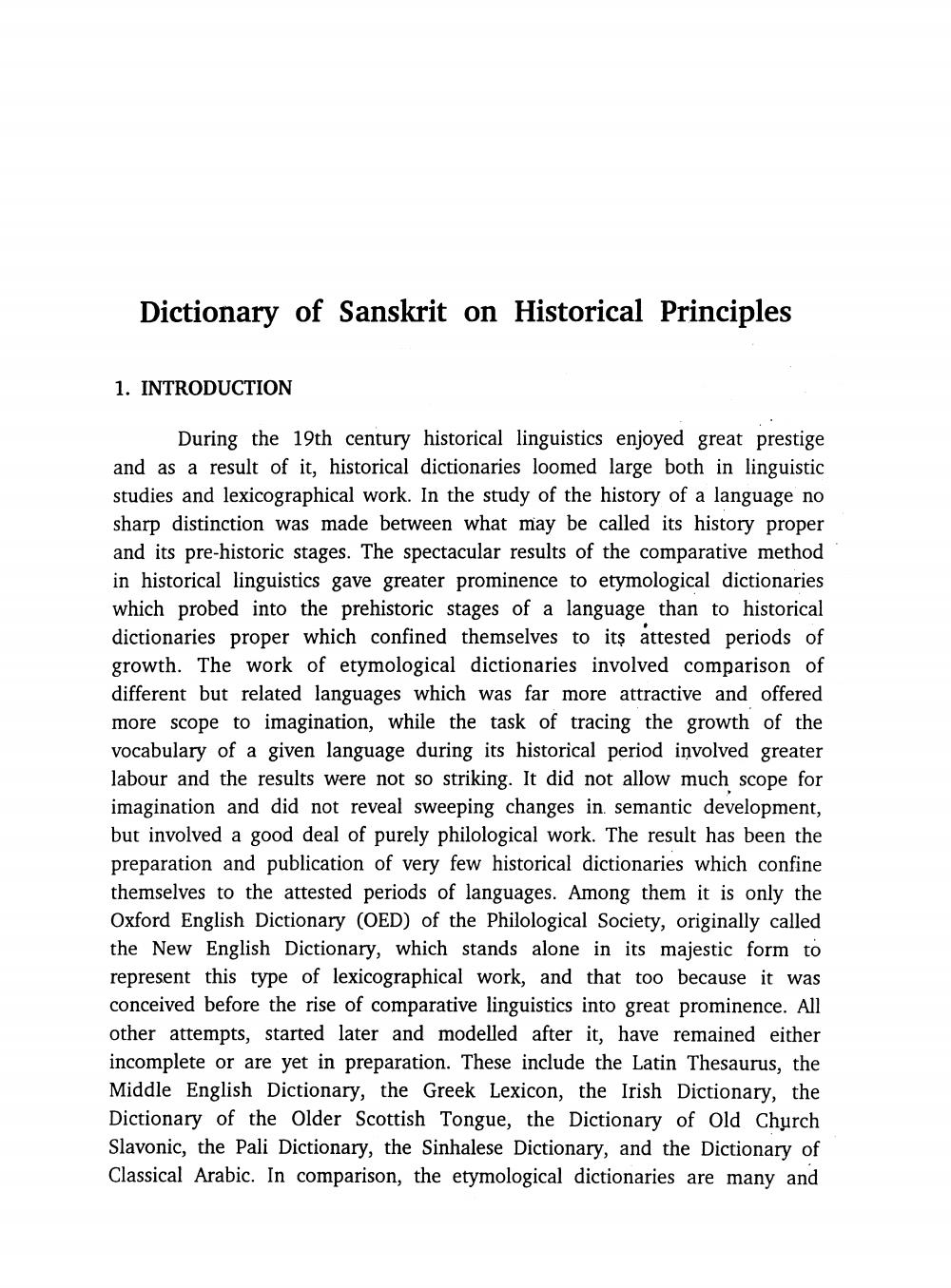________________
Dictionary of Sanskrit on Historical Principles
1. INTRODUCTION
During the 19th century historical linguistics enjoyed great prestige and as a result of it, historical dictionaries loomed large both in linguistic studies and lexicographical work. In the study of the history of a language no sharp distinction was made between what may be called its history proper and its pre-historic stages. The spectacular results of the comparative method in historical linguistics gave greater prominence to etymological dictionaries which probed into the prehistoric stages of a language than to historical dictionaries proper which confined themselves to its attested periods of growth. The work of etymological dictionaries involved comparison of different but related languages which was far more attractive and offered more scope to imagination, while the task of tracing the growth of the vocabulary of a given language during its historical period involved greater labour and the results were not so striking. It did not allow much scope for imagination and did not reveal sweeping changes in semantic development, but involved a good deal of purely philological work. The result has been the preparation and publication of very few historical dictionaries which confine themselves to the attested periods of languages. Among them it is only the Oxford English Dictionary (OED) of the Philological Society, originally called the New English Dictionary, which stands alone in its majestic form to represent this type of lexicographical work, and that too because it was conceived before the rise of comparative linguistics into great prominence. All other attempts, started later and modelled after it, have remained either incomplete or are yet in preparation. These include the Latin Thesaurus, the Middle English Dictionary, the Greek Lexicon, the Irish Dictionary, the Dictionary of the Older Scottish Tongue, the Dictionary of Old Church Slavonic, the Pali Dictionary, the Sinhalese Dictionary, and the Dictionary of Classical Arabic. In comparison, the etymological dictionaries are many and




